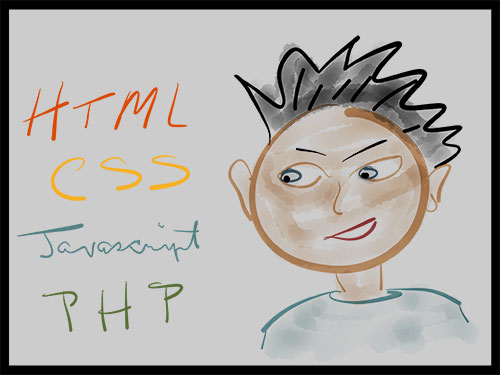
Many people decide they want a website for their business, project, blog, community, etc., but they’ve never worked with a developer before. In today’s digitally-driven era, where the internet serves as the cornerstone of communication, commerce, and connection, the role of a web developer has become increasingly vital. From the sleek websites we navigate effortlessly to the complex web applications that power businesses, web developers are the architects behind the digital landscapes we traverse daily. But what exactly does a web developer do? Let’s dive into the intricacies of this profession and unravel the mysteries behind their craft.
Understanding the Basics:
At its core, web development involves the creation and maintenance of websites and web applications. It encompasses a spectrum of tasks, ranging from designing the user interface to coding the functionality that powers interactive elements. A web developer’s toolkit includes programming languages, frameworks, libraries, and various tools essential for building and optimizing digital experiences.
Frontend Development:
Frontend developers are tasked with bringing the design of a website or web application to life. They work with languages like HTML, CSS, and JavaScript to create visually appealing and interactive user interfaces. HTML forms the structure of web pages, CSS styles them, and JavaScript adds interactivity and dynamic behavior.
Moreover, frontend developers are often well-versed in frontend frameworks like React, Angular, or Vue.js, which streamline the development process and enable the creation of complex user interfaces more efficiently. They ensure that the user experience is seamless across different devices and browsers through responsive design and cross-browser compatibility.
Backend Development:
While frontend development focuses on what users see and interact with, backend development deals with the behind-the-scenes functionality that powers websites and web applications. Backend developers work with server-side languages like Python, Ruby, Java, or Node.js to build the logic, databases, and server infrastructure necessary for the application to function.
They handle tasks such as database management, user authentication, API integration, and server optimization to ensure the smooth operation of web services. Additionally, they may utilize frameworks like Django, Flask, Ruby on Rails, or Express.js to expedite backend development and maintain code consistency.
Full-Stack Development:
Some developers possess skills in both frontend and backend development, earning them the title of full-stack developers. Full-stack developers have a comprehensive understanding of the entire web development process, from designing user interfaces to configuring server environments. They’re capable of handling all aspects of web development, making them valuable assets in both small startups and large enterprises.
Continuous Learning and Adaptation:
One of the most exciting aspects of being a web developer is the constant evolution of technology. New frameworks, libraries, and tools emerge regularly, challenging developers to stay updated with the latest trends and best practices. Continuous learning is not just encouraged but essential for web developers to remain competitive in the ever-changing landscape of technology.
Collaboration and Problem-Solving:
Web development often involves collaboration with designers, other developers, project managers, and stakeholders to bring a project to fruition. Effective communication and teamwork are crucial for successfully delivering high-quality web solutions that meet client requirements and user needs.
Moreover, web developers are adept problem solvers, capable of troubleshooting issues, debugging code, and finding creative solutions to technical challenges. Their ability to think critically and adapt to evolving requirements ensures the smooth execution of web projects from conception to deployment.
Conclusion:
In essence, web developers are the masterminds behind the digital experiences we encounter daily. Their expertise in frontend and backend development, coupled with their problem-solving skills and collaborative mindset, enables them to create the dynamic and immersive web environments that define our online interactions. As technology continues to advance, the role of web developers will remain indispensable, shaping the digital landscape for years to come. Whether you’re a seasoned developer or aspiring to enter the field, the journey of web development promises endless opportunities for innovation, growth, and creativity.